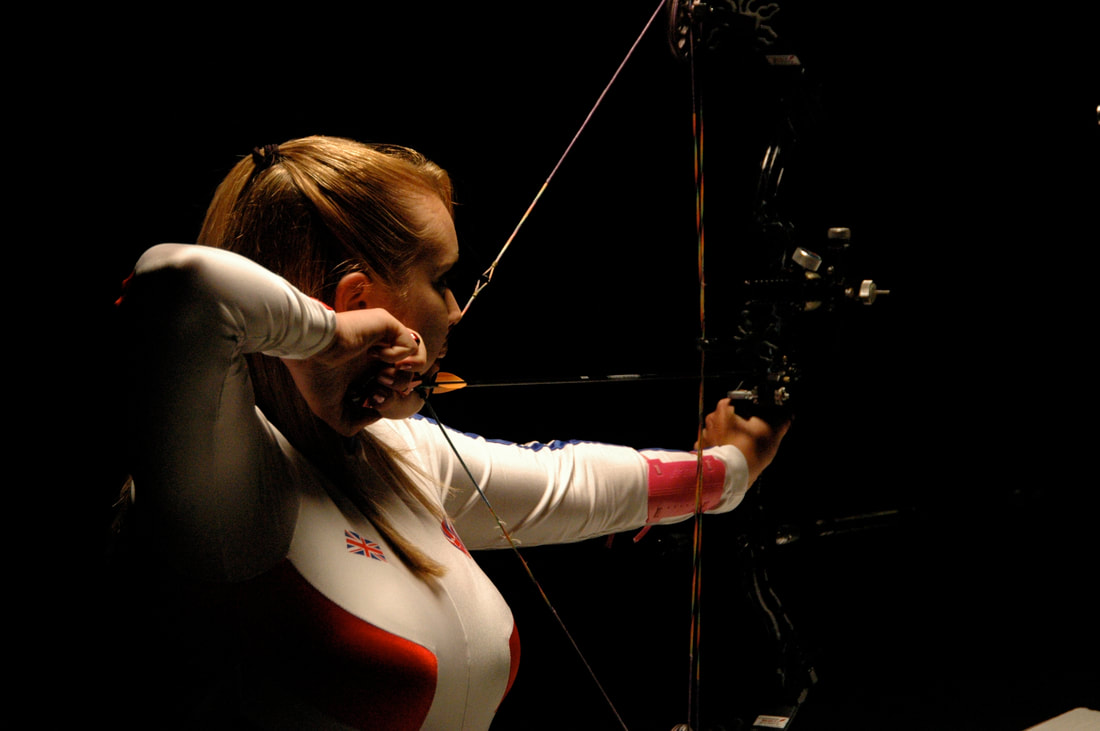|
Have you ever had your life turned upside down? Things are going great, then something gets flung your way that you never expected? Yep, that happened to me… I had this awesome sports career that just got better and better. It was a bit of a whirlwind really. I started archery on my fifteenth birthday, made the Great Britain team three years later and jumped straight in as World Number 1. Year on year I outdid myself. World records, world titles, world firsts. I pushed the boundaries of my potential and redefined what I thought I was capable of. Whenever I am asked about the important factors that lead to success in sport it can unreservedly be summed up in one word: passion. If you love what you do then you’re going to want to put in however much time and effort it takes to achieve scary, big goals. Passion is the thing that inspires you to keep striving for better. It ensures you keep learning and evolving, and think up creative strategies to drive performance. It’s your motivation to find a way around the obstacles that inevitably crop up and stops you from walking away when things get impossibly tough. And I was passionate about my sport. I poured my heart and soul into it. Archery had changed my life in such a profound way, empowering me to live life on my terms when I became disabled. This was my purpose, my reason for getting up in the morning. And I was good at it. But then something happened that I couldn’t prepare for. The International Paralympic Committee changed the rules around classification. Whilst I’d always passed this with flying colours, under the new rules it was decided that my disability did not affect my ability enough. And that was it. I was no longer allowed to compete as a Paralympian. Overnight I lost everything. My sport. My purpose. My way of life. My identity. My life came crashing down and I quickly moved from shock to disbelief. The classifiers saw what I wanted the outside world to see and didn’t understand just how limiting my condition was, so I contested it. I appealed and protested, and I got nowhere. Failing again was almost worse than the first time. I felt angry, frustrated and alone. Lost. But life moves forward whether you want it to or not. My only option was to adapt to the situation. I could do nothing about the classification decision, but I could control my response to it. Instead of focusing on all the things I had lost, I focused on what I had left. I needed to find a new purpose, one that I was just as passionate about as my sport. And that’s exactly what I did. I reinvented myself, set up a speaking, training and coaching business – and I absolutely LOVE what I do now. Life doesn’t always go to plan, but we are all capable of breaking through barriers. When you’re thrown a curveball here are three things that you can do: 1. PerspectiveWhen stuff goes wrong it’s usually accompanied by an emotional response, making us feel pretty rubbish about ourselves and the situation. Emotions are healthy and we don’t want to switch them off, but we don’t want them to interfere in any decision-making processes either. When we’re thinking emotionally, we aren’t always able to see things with clarity. Putting things into perspective allows us to respond better. Acknowledging your emotions and practicing self-compassion is important, then take some time to reflect on the situation and the reality of it. 2. FocusWhen we hit barriers our focus is often drawn to the ‘why?’ We want to find a way to rationalise the experience and understand how it happened to us. However, this keeps us stuck in the past. There might be a few important lessons to be learned, but in order to move forwards we need to shift our focus away from what happened to what we’re going to do about it. It’s much more impactful to think about solutions rather than trying to explain away the problem. 3. Choose the right responseWe always have a choice, even when we’re faced with adversity. It’s not what happens to us, but how we choose to respond to that situation. We can give up or we can pick ourselves up. Taking ownership of the situation and focusing on the things you can do something about puts the ball back in your court. Pushing through adversity isn’t easy. It can be a very lonely place, but remember you are never alone. Your support network is there to help, offering encouragement and guidance. They can help you manage your emotions, act as a sounding board to bounce ideas off and hold you accountable for actions you decide to take. I can’t begin to explain how many people have helped me (and still do!) through the adversities I’ve faced in my life, giving me a fresh perspective and allowing me to tackle challenges better. Categories All
4 Comments
|
Details
Categories
All
|
|
Contact Danielle at [email protected]
|


 RSS Feed
RSS Feed